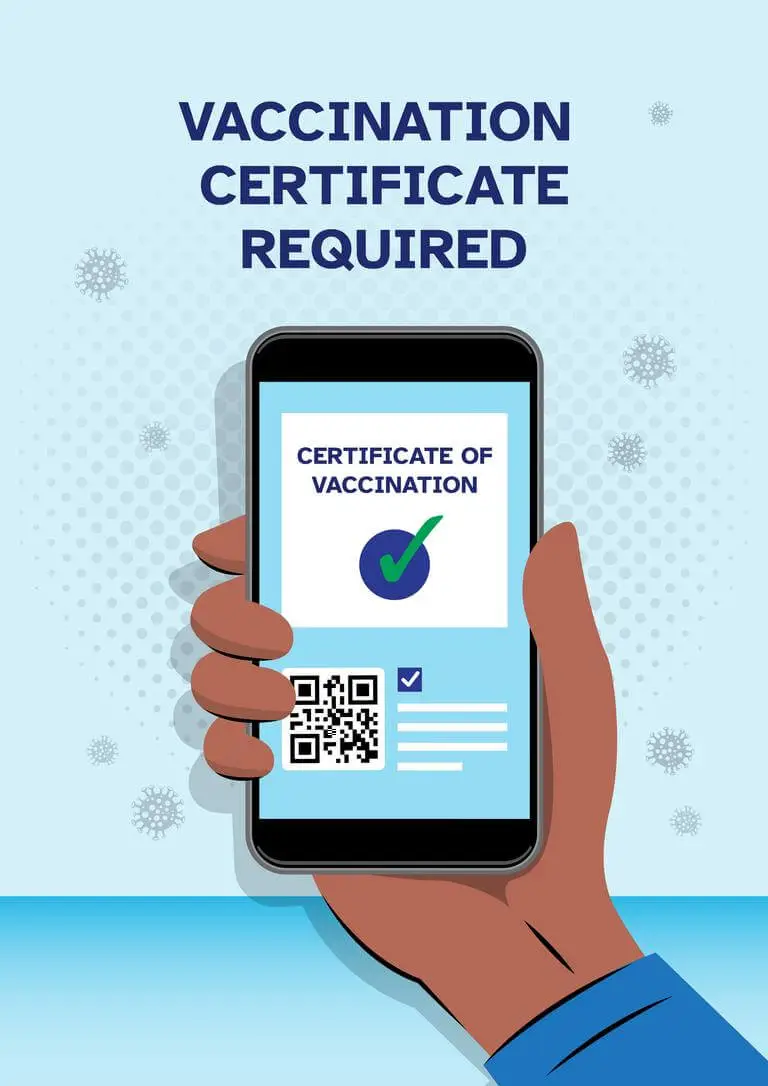Good health for your pet means feeding them highly nutritious food that meets their nutritional requirement, and staying on top of their vaccinations. Vaccinations protect your dog from some life-threatening illnesses such as rabies and distemper. There are also non-core vaccinations that address more specific health risks based on your dog’s lifestyle and environment. But what happens when you realize oh, I lost my dog vaccination records? Here is how to move forward from this.
Why Are Vaccination Records Important?
Vaccination records are not pieces of paper you need to safeguard. They are a documented history of your dog’s battle shields against various diseases. Vaccination records act as a roadmap showing the path your dog has taken to build immunity and is safe to be outside. Here’s why keeping these records close is crucial:
Travel and Social Requirements
If you are traveling, whether you want your dog with you or need to leave them in a boarding facility, you need vaccination records. Most doggy daycares, public parks, and kennels require proof that your pet has been vaccinated against certain diseases. These records guarantee the safety of your dog and the well-being of other animals they interact with. Vaccination records are like a passport for your pet that opens doors to various social and travel opportunities.
Streamlining Veterinarian Visits
Giving a vet vaccination records helps in different ways. Firstly, it prevents your dog from receiving unnecessary vaccinations — too much of a good thing is bad, right? Secondly, it guides your vet in determining the best course of treatment for your dog. Most diseases have specific vaccines that may need to be given at the right time.
Health Monitoring
Vaccination records are an essential part of your dog’s medical history. They provide valuable information to veterinarians when diagnosing any health concerns. These records also help track changes in your dog’s well-being especially after non-core vaccinations. Since these vaccinations might need to be repeated, these records are important. They ensure you maintain good health for your dog and address potential health issues in a timely way. This is why it is important to see if there is any dog behavior change after vaccination.
Losing these records can be more than just a minor inconvenience. It can lead to repeated vaccinations. At worst, it could result in difficulties in situations where proof of vaccination is required. For example, dog boarding, kennel stays, or international travel.
Who Might Need to Access These Records?
Other than the vet, who needs to see my dog’s vaccination records? Interestingly, it is not until you lose vaccination records that you realize they are more in demand than you might think. Here’s a scoop on who might ask for them and why:
1. Veterinarians (during checkups or emergencies)
When you pop into the vet’s office for a checkup or dash in during an emergency, the first thing they’ll ask for? You guessed it — vaccination records. Think of this as your pet’s health resume. It tells the vet what protection your furry friend already has so they can make quick and informed decisions. It helps, particularly during emergencies, to avoid any vaccine overdoses or conflicts.
2. Boarding Facilities and Doggy Daycare Centers
Planning a trip or a long day away? If your dog’s going to mingle in boarding facilities or daycare, vaccination records are their ticket in. These places need to ensure all their fluffy guests are vaccinated to keep diseases from gatecrashing the party. It’s all about creating a safe play space so your pet can have fun without any health risks.
3. Dog Groomers (some may require proof of vaccinations)
Ever thought about a spa day for your dog? Before they get pampered, some groomers might ask for vaccination records. Though not all groomers do, the ones that do are just playing it safe, ensuring your dog and others stay healthy, even during a trim or bath.
4. Travel Authorities (when flying or crossing borders with your dog)
Got a travel buddy with a wagging tail? Whether you’re flying or driving across borders, vaccination records are a must. These documents are like your dog’s passport, proving they’re safe to travel and won’t bring back any unwanted souvenirs, like diseases. It’s about keeping everyone, everywhere, safe — on two legs or four.
Each of these scenarios highlights the need and value of keeping your dog’s vaccination records safe and accessible. It’s all about ensuring your furry friend can participate fully and safely in all aspects of life with you.
What to Do if You’ve Lost Your Dog’s Vaccination Records

Losing your dog’s vaccination records might feel like hitting a roadblock, but don’t worry! There are steps you can take to get back on track. Here’s how:
Contact Your Veterinarian:
Can a vet tell if a dog has been vaccinated? Absolutely! Most veterinarians keep electronic records of their patients. The first step should be to call your vet, explain the situation, and ask if they can provide a copy of your dog’s vaccination records. They understand these things happen and are there to help.
Look for Alternative Proof
If contacting the vet doesn’t pan out or you’re looking for immediate proof, dig up any receipts from past vaccinations. These can serve as temporary evidence until you get the official records. Also, consider proof of microchipping. Microchips themselves may not contain vaccination information, but the registration might have related details, especially if you reported vaccinations at the time of microchipping.
Request a titer test
If contacting your vet doesn’t yield results, you can consider requesting a titer test to determine if your dog has sufficient immunity against certain diseases. This blood test can measure the levels of antibodies in your dog’s system, providing an indication of their protection against specific viruses.
Re-vaccination
What to do if I don’t know if my dog is vaccinated? This is where titer tests come into play. A titer test is a blood test that measures the level of antibodies against disease in your dog’s blood. The results will indicate whether your dog has immunity. If the immunity levels are sufficient, your dog may not need re-vaccination. Discuss this option with your vet; they can guide you on whether a titer test is suitable and interpret the results correctly.
I understand that the idea of starting fresh with vaccinations might seem concerning due to the fear of over-vaccination. Luckily, modern veterinary medicine considers such scenarios carefully. Before re-vaccinating, veterinarians assess the individual health status and potential risks to ensure that the benefits of re-vaccination outweigh any risks.
Taking the above steps will ensure your dog stays protected and keep you prepared for any situation requiring proof of vaccinations. Remember, your vet is your ally in keeping your furry friend healthy and happy.
Understanding Dog Vaccinations
Vaccinations are divided into two categories: core and non-core vaccines. Core vaccinations are essential for all dogs, regardless of their location or lifestyle, because they protect against widespread, highly contagious, or extremely dangerous diseases. These include rabies, distemper, parvovirus, and adenovirus.
Non-core vaccinations, however, are recommended based on the dog’s exposure risk to certain diseases, which can vary by geography, environment, and lifestyle. These might include leptospirosis, Bordetella bronchiseptica (kennel cough), and Lyme disease.
Vaccination Schedule
- For puppies, the primary series of vaccinations starts at six to eight weeks of age, with booster shots administered every three to four weeks until they are around 16 weeks old. This ensures they build a strong immunity as they grow.
- Adult dogs typically need booster vaccinations for core vaccines every three years, but this can vary. For example, the rabies vaccination frequency might be determined by local laws.
How many times does a dog need to be vaccinated?
It depends on the type of vaccine, the dog’s age, medical history, and lifestyle. Core vaccinations are given more regularly, while non-core vaccinations are based on individual risk assessment.
· At what age do you stop vaccinating your dog?
Dogs never truly stop needing vaccinations. While the frequency of vaccinations may decrease as they age, booster shots for core vaccinations are recommended throughout a dog’s life.
· How long does vaccine last for dogs?
The duration of immunity varies by vaccine, but many core vaccines offer protection for three years or more.
It’s important to personalize your dog’s vaccination plan with your veterinarian. Factors like health status, lifestyle, and risk of exposure to certain diseases can greatly influence vaccination needs and schedules.
Keeping Your Vaccination Records Safe
Ensuring that your dog’s vaccination records are safe, secure, and easily accessible is paramount. Here are a few strategies to consider for effective record-keeping:
- Take clear pictures of the vaccination card for digital storage. Use your smartphone or a digital camera to take high-resolution pictures of your dog’s vaccination records. Store these images in a dedicated folder on your computer or cloud storage service. This way, you’ll have a backup that’s readily accessible, even if you’re away from home.
- Consider online pet management tools to store records. Many websites and apps now offer services for managing your pet’s health records digitally. These platforms often feature reminders for upcoming vaccinations and vet appointments, making it easier to stay on top of your dog’s health needs.
- Keep physical copies in a safe and organized location. Despite the convenience of digital copies, it’s also wise to keep original physical documents in a safe place. Store them in a waterproof and fireproof box, file organizer, or a dedicated section of your home filing system. Make sure they are clearly labeled and easy to grab in case of emergencies.
By implementing these methods, you’ll keep your dog’s vaccination records safe and ensure they are easily retrievable when needed. Organizational effort can save time and stress, particularly in situations requiring immediate evidence of vaccinations.
Keep Your Vaccination Records Safe
Safeguarding your dog’s vaccination records is among the practices of responsible pet ownership. These documents ensure your furry friend receives timely medical care, adheres to local regulations, and maintains access to boarding facilities and public spaces. You can be proactive in managing these records. You gain a lot through digital backups, dedicated storage solutions, or online management tools. A small effort in keeping these records organized and accessible can make a significant difference in your dog’s life and your readiness for any situation that may arise.





